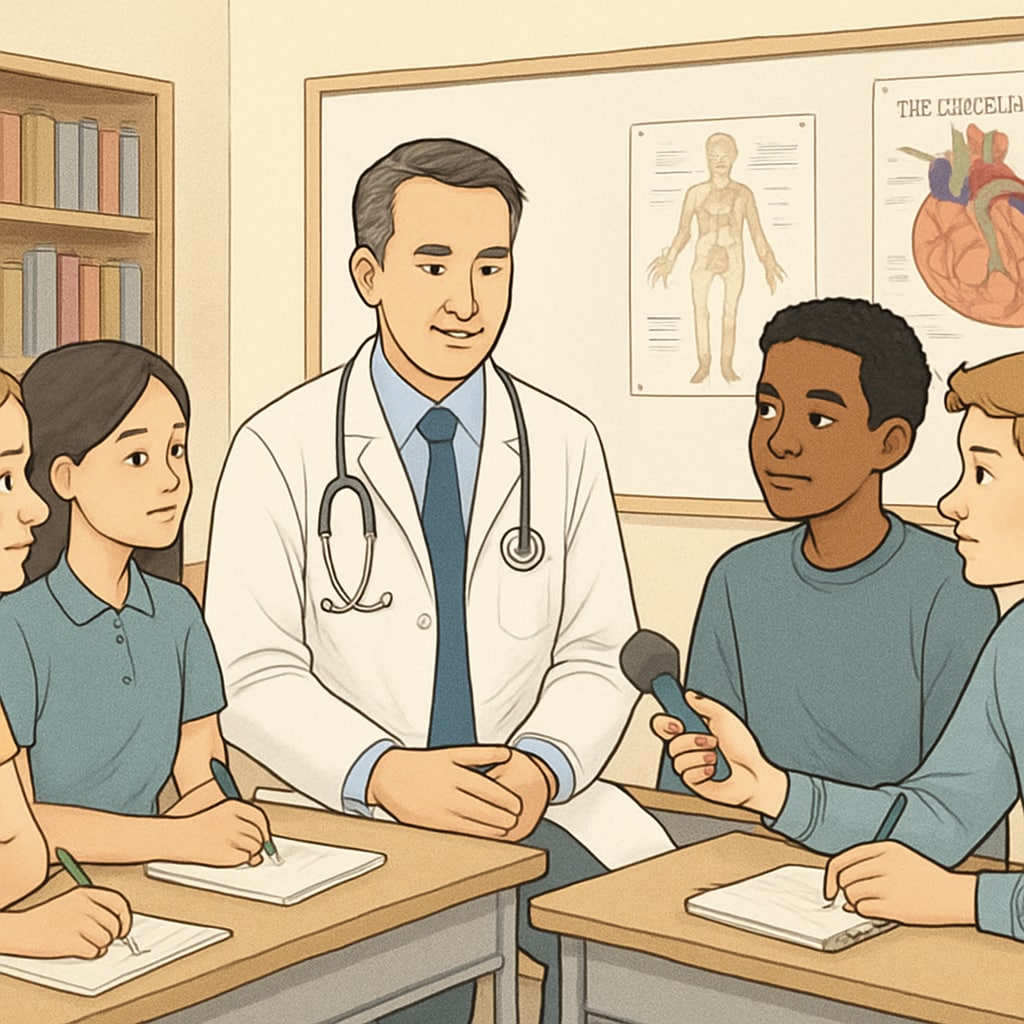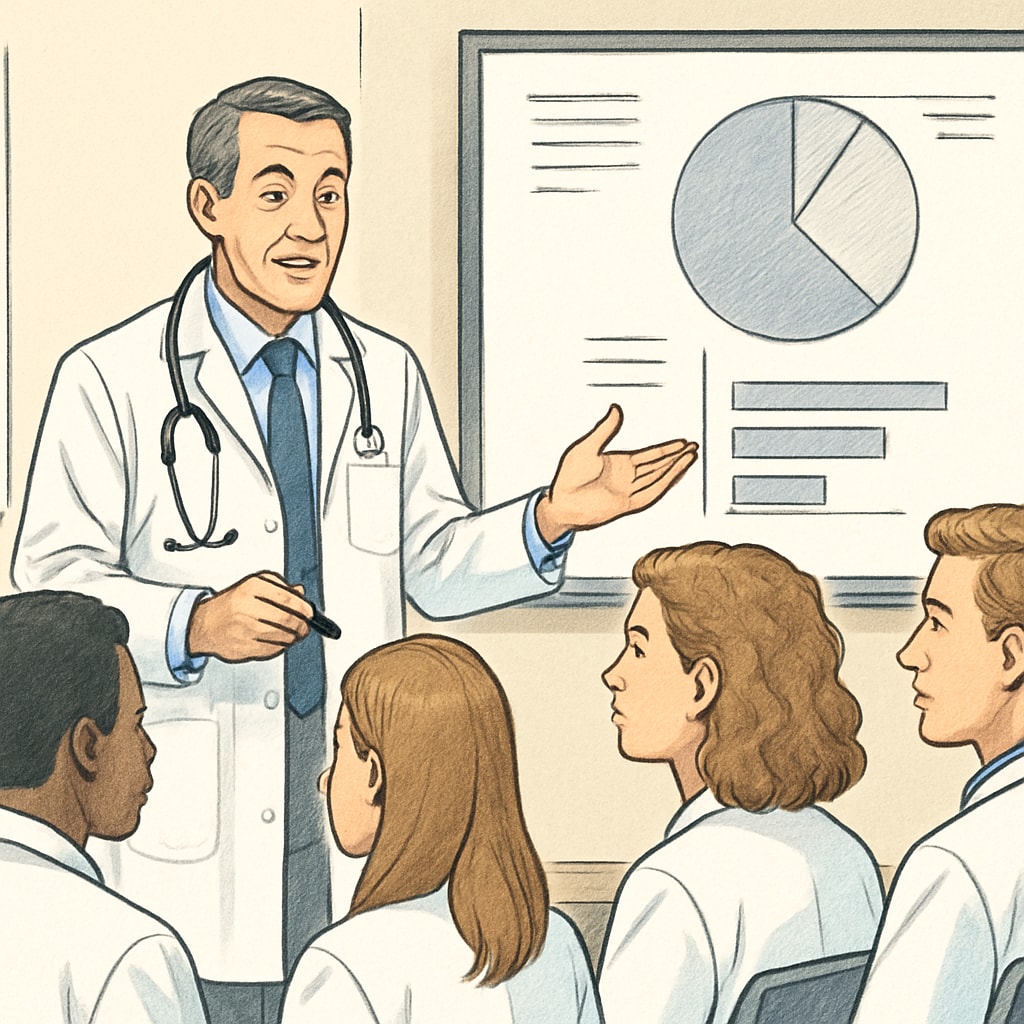Incorporating “medical career, school projects, and doctor interviews” into K12 education can offer transformative learning experiences for students. By engaging directly with healthcare professionals, students gain insights into the real-world responsibilities and challenges of medical careers, fostering early career awareness and empowering effective decision-making for their futures. This article outlines the importance of such projects, a step-by-step framework for implementation, and practical guidance to ensure meaningful interactions between students and medical professionals.
The Importance of Medical Career Interview Projects in Schools
Medical career interview projects are invaluable tools for schools aiming to bridge academic learning with real-world career exploration. These projects help students understand the diverse roles within the medical field, from general practitioners to specialized surgeons and researchers. For example, students might learn about the rigorous educational journey required for medical professionals or the emotional resilience needed to handle challenging cases.
Additionally, these projects promote skills such as critical thinking, communication, and professional etiquette. By interacting with doctors, students experience first-hand how knowledge and empathy combine to provide effective patient care. As a result, they can make more informed choices about pursuing medical careers or other healthcare-related paths.

How to Design an Effective Medical Career Interview Project
Designing a successful medical career interview initiative requires careful planning and collaboration. Below is a framework to guide educators:
- Define Objectives: Clearly identify the goals of the project, such as increasing awareness of medical professions or developing communication skills.
- Recruit Medical Professionals: Partner with local clinics, hospitals, or medical schools to invite professionals from diverse specialties.
- Prepare Students: Teach students how to craft thoughtful interview questions and practice professional behavior.
- Facilitate Interviews: Organize sessions in-person or virtually, ensuring a structured yet open dialogue between students and doctors.
- Reflect and Share: Encourage students to analyze their learning and share key takeaways through presentations or reports.
Tips for Engaging Students and Doctors Effectively
To maximize the benefits of a medical interview project, both students and healthcare professionals need to feel comfortable and well-prepared. Here are some practical tips:
- For Students: Teach them to ask open-ended questions that explore both technical and personal aspects of medical careers. For example, “What inspired you to choose this specialty?” or “How do you manage work-life balance in a demanding field?”
- For Doctors: Encourage them to share personal anecdotes, challenges they faced, and advice for aspiring medical professionals to make the conversation relatable and inspiring.
- For Educators: Act as moderators during the interviews to ensure the discussion stays on track and remains engaging for all participants.

Impact on Students’ Career Development
Medical career interview projects can have a profound impact on students’ career planning and development. By interacting with doctors, students not only gain insight into the medical field but also build confidence in their ability to pursue demanding professions. These experiences often ignite a passion for healthcare, inspiring students to consider roles in medicine, nursing, or public health.
Furthermore, the skills developed—such as research, communication, and reflection—are transferable to other career paths, making these projects beneficial even for students who may not ultimately choose medical careers.
Conclusion
Integrating medical career interview projects into K12 education is a powerful way to connect students with real-world professionals, sparking curiosity and ambition. By fostering meaningful conversations between students and doctors, schools can play a pivotal role in shaping the next generation of healthcare providers and empowering young minds to explore their potential.
As a result, educators and healthcare professionals alike can collaborate to create enriching experiences that leave lasting impressions on students. With structured planning and engagement, these projects can transform career exploration into a dynamic and inspiring journey.
Readability guidance: Use short paragraphs and bulleted lists to summarize key points. Employ clear transitions such as “for example,” “in addition,” and “as a result” to maintain flow. Limit passive voice and ensure concise sentence structure for improved readability.


